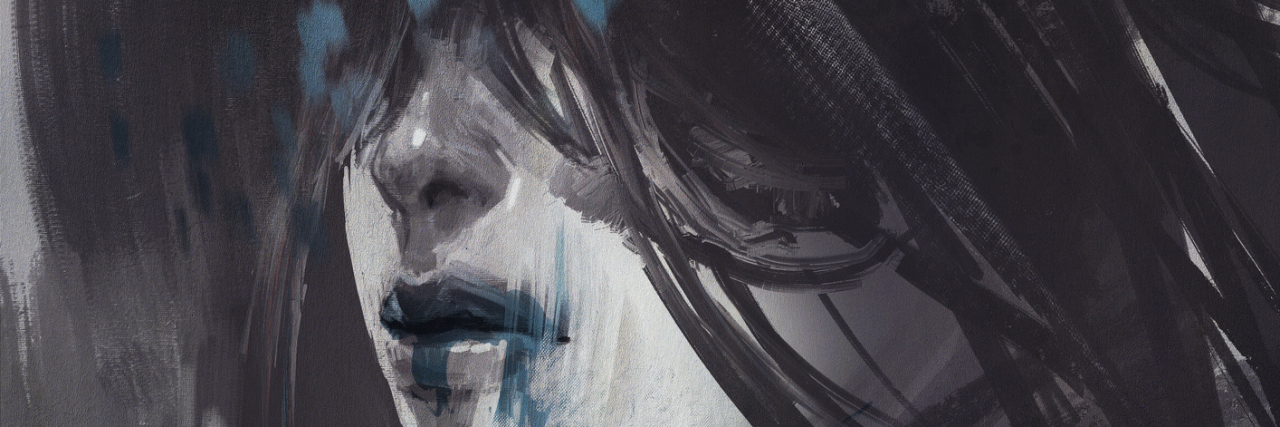The Way Society Talks About Sexual Assault Is Hurting Women
Editor's Note
If you’ve experienced sexual abuse or assault, the following post could be potentially triggering. You can contact The National Sexual Assault Telephone Hotline at 1-800-656-4673.
I was forced into having my first kiss at the age of 13. I was a late bloomer. Boys terrified me, and while my classmates explored ever-rising hemlines and halter crop tops, I cocooned my body in T-shirts, fleeces and baggy jeans. Still, though, I desperately wanted to belong, because it was safer to be a part of the herd than straggle along the periphery. The latter was akin to wearing a bullseye on your forehead.
A hotel in my hometown frequently held discos for teenagers — an adolescent practice ground for the cattle market that awaited us in adulthood — and it was declared that we were going. I was almost catatonic with anxiety, but knew if I didn’t “make the effort,” I would slip unceremoniously into target territory. I didn’t yet understand I was already a target.
There was a boy — let’s call him Joe. Joe was there with his friends, and as his friends were all pairing up with my “friends,” it was made clear that I was expected to go with Joe. It was made clear, by my “friends,” that if I didn’t go with Joe, I would have to find my own way home. When you’re 13, already riddled with anxiety, and you’re faced with the prospect of walking home alone at midnight, you don’t argue. So I went with Joe. I hadn’t yet explored my own body, and this boy — cheered on by his friends as they watched and clapped and howled with laughter — moved his hands over me, grabbing and groping, while my arms hung limp, too afraid to protest.
That was over 20 years ago. I now have children of my own, one of them not far from 13, and every time this memory rears its head from the swamp of my formative years, my chest burns at the thought of her ever having to go through the same thing. Growing up in a country like Northern Ireland brings with it its own complications, not least of them being the latent acceptability of the notion that the bodily autonomy of women and girls doesn’t need to be discussed. Here, we are the purveyors of silences.
We women are the housemaids, the homemakers, the babysitters, the cleaners and cooks; we are mothers after our mothers’ mothers, neck-deep in a legacy of repression too easily overlooked and forgotten. We have a saying: “God made the back for the burden.” The comfort offered to the generations of wives and daughters who would take their seat in church on a Sunday having been battered around the kitchen or pinned to the bed the night before to remind them of their place.
In learning to become a woman, I learned “rape” is a dirty word associated only with attention-seekers, troublemakers and bunny boilers. And yet, behind closed doors, other women whispered “me too.” In learning to become a woman, I learned that it is acceptable for a man to terrorize his girlfriend because he is troubled, has anger issues and can’t help himself when he’s drunk — that it isn’t his fault, because he’s been through so much.
In learning to become a woman, I learned our bodies are subject to social commentary, opinion and judgment based on how successfully we strike the balance between prescribed function and aesthetic — and we remain at the mercy of those who have the power to tell us we are failing.
This is the curriculum of womanhood — the world over, writ large and looming over our heads, casting us in the shadow of centuries past, and it is an abomination. Some would try to convince us we have progressed as a society, that women are empowered and feminism flogs the proverbial dead horse. But for as long as there are others perpetuating the patriarchal narrative, slapping women down for speaking out, censoring their right to free speech and citing the ones who dare to scream “me too” as “lying whores” who “ask for it,” it is clear that we remain mired in the endemic subjugation of the female — and that the curriculum demands to be rewritten.
Getty Images photo via Grandfailure

